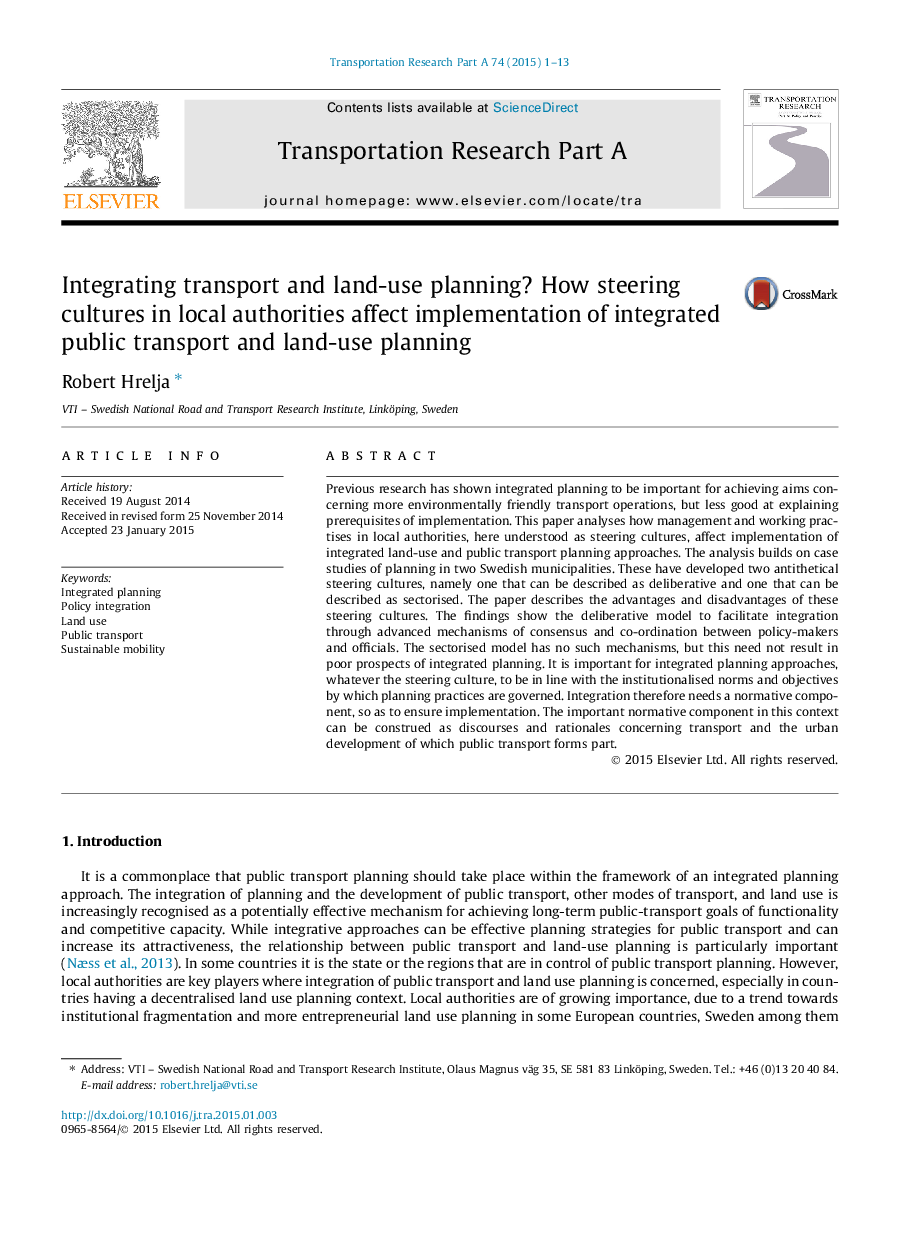| Article ID | Journal | Published Year | Pages | File Type |
|---|---|---|---|---|
| 6781306 | Transportation Research Part A: Policy and Practice | 2015 | 13 Pages |
Abstract
Previous research has shown integrated planning to be important for achieving aims concerning more environmentally friendly transport operations, but less good at explaining prerequisites of implementation. This paper analyses how management and working practises in local authorities, here understood as steering cultures, affect implementation of integrated land-use and public transport planning approaches. The analysis builds on case studies of planning in two Swedish municipalities. These have developed two antithetical steering cultures, namely one that can be described as deliberative and one that can be described as sectorised. The paper describes the advantages and disadvantages of these steering cultures. The findings show the deliberative model to facilitate integration through advanced mechanisms of consensus and co-ordination between policy-makers and officials. The sectorised model has no such mechanisms, but this need not result in poor prospects of integrated planning. It is important for integrated planning approaches, whatever the steering culture, to be in line with the institutionalised norms and objectives by which planning practices are governed. Integration therefore needs a normative component, so as to ensure implementation. The important normative component in this context can be construed as discourses and rationales concerning transport and the urban development of which public transport forms part.
Related Topics
Physical Sciences and Engineering
Engineering
Civil and Structural Engineering
Authors
Robert Hrelja,
